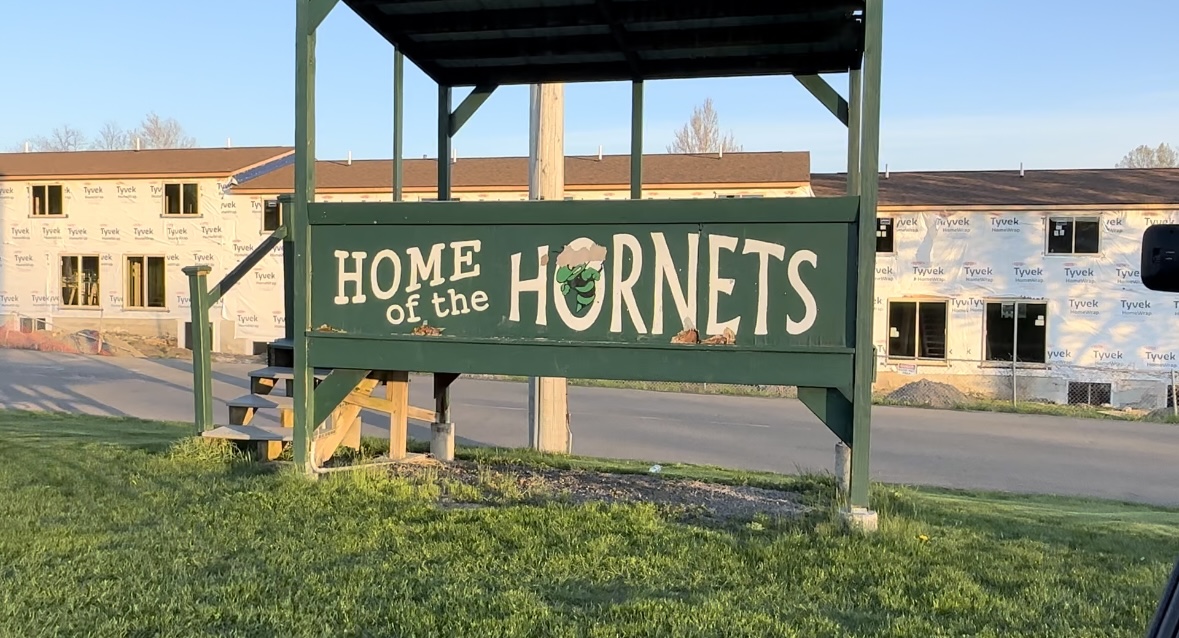
CONTENT WARNING: THIS PIECE CONTAINS EXTENSIVE DISCUSSION OF MENTAL ILLNESS, DEATH, SUICIDE, GRIEF AND OTHER RELATED TOPICS.
SYRACUSE, N.Y. (NCC News) – Liam Qi, as described by his brother Luke, loved hanging out with friends, going on adventures and staying up late to play chess and video games. He would listen to what someone was saying before responding.
“He was just a sweet guy,” Luke Qi said.
So, where is Liam now?
Liam died by suicide on November 1, 2022. He was just 16 years old.
He is just one of many adolescents that struggled with the transition back to in-person schooling. Research has shown that suicide rates actually dropped during the “quarantine” period, during which all schooling was done online. However, feelings of sadness and hopelessness, along with suicidal ideation, persisted.
Dr. Melissa Carman, a therapist based in Manlius, explained that the transition back to in-person schooling was too jarring and unnatural.
“It was really actually very traumatic from being at home, being protected, having this slower pace, to then being thrust right back in the way it was ‘supposed to be’,” Carman said. “There’s trauma research to suggest that’s not how people are.”
A local community has seen this tragic research manifest itself firsthand.
In the span of just over seven months, two students at Fayetteville-Manlius High School died by suicide. Jay Lu, one of Liam’s best friends, died by suicide on March 25, 2022 at the age of 15 years old. Luke said that Jay’s death deeply affected Liam, but he and his family never knew the extent to which Liam was hurting.
“I looked through my text messages with him. Before, it was normal responses. After, he’d give one word answers,” Luke said. Luke was back at school after news of Jay’s death broke; he’s pursuing his PhD at Stanford.
The effects of suicide are far reaching. Fayetteville-Manlius senior Kirsten Comer says the school is still reeling from the student suicides.
“We’re dealing with a lot of suicides in the school, which has been really tough just to be in the school,” Comer said. “They were in the exact same school I was, struggling the exact same way I was a few years ago, and they just felt like that was the only way out.”
While the environment has been difficult to cope with, Comer shared that students are speaking up about mental health and trying to reduce the stigma around discussing the topic. However, she thinks this indicates a deep-rooted issue amongst the student body.
“A lot of kids are coming together now and talking about it, which is great,” Comer explained. “It’s a huge conversation, which means a lot of kids are struggling… like, deeply struggling.”
One of those kids is recent Fayetteville-Manlius graduate Michael OuYang. He turned to social media to share his journey with his own mental health, especially in the wake of Jay’s death. OuYang knew Jay through extracurriculars.
The page, called No Empty Seats, is intended to destigmatize the conversation about mental health and being vulnerable about your mental state. OuYang has partnered with several Division I athletic teams to promote the cause, and he’s recently started selling wristbands with part of the proceeds going to the American Foundation for Suicide Prevention (AFSP).
“It’s been a really amazing experience. No Empty Seats has definitely stuck with me and been a really nice public journal to help me get all my thoughts out,” OuYang said. “Hopefully it’s helped a lot of other people.”
This kind of conversation is necessary, according to Dr. Carman. She says that generational shifts, meaning drastic changes in societal norms, “almost always” begin with young people. However, the first step is for kids to learn how to communicate how they are feeling with their parents.
“If we’re ever working with a kid or adolescent, we’re always pulling the family in,” Carman explained. She added that in many cases, kids simply don’t know how to talk to their parents about their mental health, which Carman has made a major point of emphasis when speaking with kids.
Both Carman and OuYang stressed the importance of therapy, with OuYang citing it as what served as a major turning point in his mental health journey.
“I think everyone should go to therapy because everyone’s going through stuff,” OuYang said. “Everyone needs to get things off their chest, whether you want to put a label on it with depression, anxiety, mental illness. Regardless, people are struggling.
For those who need immediate help, the 988 suicide hotline is a great option, according to Dr. Carman. The hotline is available 24 hours day, seven days a week, and has both texting and calling options. Dr. Carman stressed, however, that the hotline is not meant for people to call on behalf of others, as there’s not much the personnel can do. It’s primarily meant for people seeking help for themselves.
As for Luke, he hopes people remember his brother, but he also wants people to know that it’s OK to grieve and take time to work on yourself.
“There’s no need to return to a sense of normalcy, which is what was happening after Liam,” Luke said. He urged people to not brush major things, like the death of a loved one, under the rug and go on like nothing happened. “Everyone has their own grief timeline. Having the space to share what’s going on with yourself is so empowering.”
If you are in need of immediate help, call or text 988.




